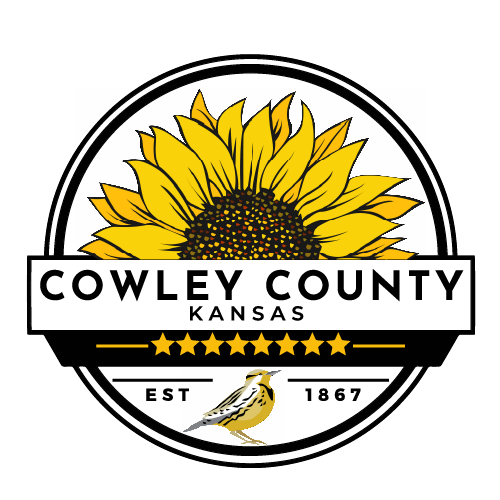Community Corrections Mission & Vision
Mission Statement
To provide a viable, cost-effective alternative to incarceration for non-violent offenders; to promote offender rehabilitation and offender accountability through evidence-based programs in the community, without compromising public safety.
Description of Services
Cowley County Community Corrections provides intensive supervision to any offender placed on probation to our agency by the 19th Judicial District Court.
While assigned to the Intensive Supervision Program, clients are required to meet with their supervising officers on a frequent basis. The Intensive Supervision Officer (ISO) completes an in-depth risk/needs assessment (LSI-R) to determine areas in the client’s life that need to be focused on to effect positive change. Individual case plan goals are developed with each client to work towards successful completion of their probation. ISO’s initiate collateral contacts with treatment providers, family members, employers, and significant others to verify that clients are attending treatment, working and complying with probation requirements. Clients are referred to cognitive-based programs within our community to address areas of need, such as alcohol and drug treatment, mental health treatment, education or employment programs. Additionally, clients submit to frequent drug testing (at their own expense) complete community service work and pay court costs and other fees as assessed by the Court. Offenders are closely monitored to ensure compliance with all Orders of Probation/Parole and the program guidelines.
Community Corrections oversees the Cowley County Drug Court Program, which was implemented in April 2009. As of 4-1-20, there have been 301 offenders that have entered the Drug Court program. Currently there are 41 clients that are currently involved in the program. We have had 143 clients or 55% successfully complete the program so far. In collaboration with the District Court, all offenders convicted under the provisions of SB123 (felony drug possession cases) and placed on probation with Community Corrections are assigned to the Drug Court Program. Additionally, other non-SB123 offenders (those convicted of property crimes, forgery etc.) may be considered for admittance into the program if they have a significant substance abuse problem and score high risk on the LSI-R assessment. The Drug Court program is a minimum of 18 months in length and any client can enter the program at any time and they advance through the program dependent on their own individual progress. The program has five phases and our program follows the National Association of Drug Court Professionals (NADCP) identified 10 Best Practice Standards for Adult Drug Courts. These standards represent the most current evidence-based practices established for drug court programs.
- Cowley County Community Corrections also provides an in-house cognitive based program, Moral Reconation Therapy (MRT) to all offenders who score high risk in specific domains of the LSI-R assessment. MRT is a systematic treatment strategy that seeks to decrease recidivism among adult criminal offenders by increasing moral reasoning. Its cognitive-behavioral approach combines elements from a variety of psychological traditions to progressively address ego, social, moral, and positive behavioral growth. Our MRT group is held each Monday from 4 pm to 5:30 pm. Participants can complete all steps of the MRT program in a minimum of 3 to 6 months. MRT attempts to change how drug abusers and alcoholics make decisions and judgments by raising moral reasoning as articulated in Lawrence Kohlberg’s Stages of Moral Development.
Strategic Focus
Public Safety
- The agency will achieve a minimum success rate of 75%, more specifically we will strive to have a 94.5% successfully closure during FY’21. This will be a 3% increase from our successful closure rate of 91.5% in FY’19.
- To obtain more complete in-depth data on all offenders and our agency overall including in-house program (MRT, Drug Court) success rates.
- In FY’21, officers will complete the initial LSI-R with offenders within the first 45 days as required and assure all offenders complete a re-assessment or discharge LSI-R with each offender.
- In FY’21 all initial case plans will target the appropriate intervention(s) that address at least two of the highest rated domains from the LSIR on 80% of the moderate to high risk offenders.
- By June 2021, the agency will hold ISOs accountable for use of MI and EPIC II skills in their day to day interaction with offenders.
- By June 2021, our agency will have updated our local Continuity of Operations plan (COOP). As the Covid-19 pandemic subsides, our agency will do a thorough assessment of how our agency operated and provided supervision to all our offenders. We will evaluate and look at all gaps in our COOP. We will collect information, evaluate and explain what functions were performed well by our agency as well as what we were not able to complete or areas, we need to make improvements.

